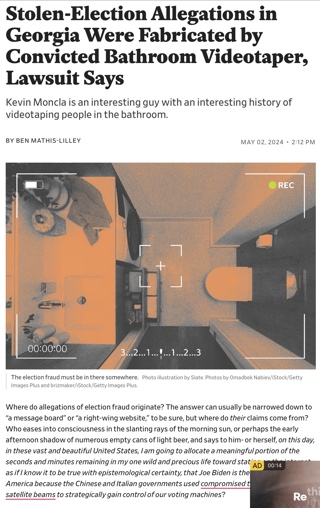The Myth of Voter Fraud Continues
New Mexico Secretary of State Dianna Duran said earlier this year that her state had a ‘culture of corruption’ and referred 64,000 voter registration records to police that she thought were possible cases of voter fraud. Now a new report from her office proves she was completely right, 0.0296875 percent of the time.
Duran’s interim report now alleges that 104 voters — about one for every 10,577 on the rolls — were illegally registered to vote. Of that group, just 19 — or approximately one for every 57,894 registered voters — actually allegedly cast a ballot they shouldn’t have.
This is a pattern. Every time voter fraud is investigated on any large scale, an incredibly tiny percentage of votes are found to be improper. When they are, almost none of them, ever, are found to be intentionally illegal votes. Tons of taxpayer money is spent, citizens are disenfranchised, voters have to spend their money in what amounts to a poll tax to acquire ID, over and over.
It is not a coincidence that the GOP pushes for voter ID and makes a fuss about voter fraud, and that the result of voter ID laws is to suppress the vote of voter blocks who mainly cast Democratic votes. This is what was behind the castigation of ACORN, and many other attacks by the GOP beside.
It’s shameful. We should encourage people to participate in the democratic process. I have no beef with any Republican organization signing up voters. I hold in complete contempt the attempts to suppress the vote.













